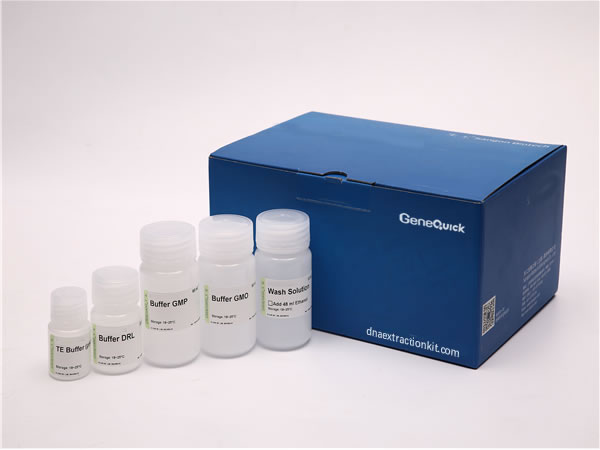What is Agricultural DNA Extraction Kit for Seeds?
The Agricultural DNA Extraction Kit for Seeds is a specialized laboratory tool designed to isolate pure DNA from seed samples. Seeds contain genetic material locked within their tough outer coatings and internal tissues, making DNA extraction challenging without proper techniques. This kit employs optimized chemical solutions and physical processes to break down seed structures, release DNA, and purify it from other cellular components. It is an essential first step in various agricultural research and quality control applications where genetic analysis of seeds is required.
Using this kit, scientists can obtain high-quality DNA suitable for downstream molecular techniques such as PCR, sequencing, or genetic marker analysis. The process is streamlined to handle the unique composition of seeds, which often include high levels of polysaccharides, proteins, and other compounds that can interfere with DNA purity. By providing reliable and efficient DNA extraction, the kit supports advancements in crop improvement, seed certification, and genetic diversity studies.

Technical Specifications
| Model | Method | Sample | Application | Format | Workflow |
|---|---|---|---|---|---|
| AG-C-SD-20R | Column | Seed | Agriculture | 20R | Manual |
| AG-C-SD-50R | Column | Seed | Agriculture | 50R | Manual |
| AG-C-SD-100R | Column | Seed | Agriculture | 100R | Manual |
| AG-C-SD-200R | Column | Seed | Agriculture | 200R | Manual |
| AG-C-SD-8R | Column | Seed | Agriculture | 8R | Semi-automated or Full Automation |
| AG-C-SD-24R | Column | Seed | Agriculture | 24R | Semi-automated or Full Automation |
| AG-C-SD-48R | Column | Seed | Agriculture | 48R | Semi-automated or Full Automation |
| AG-C-SD-72R | Column | Seed | Agriculture | 72R | Semi-automated or Full Automation |
| AG-C-SD-96R | Column | Seed | Agriculture | 96R | Semi-automated or Full Automation |
Working Principle
The principle behind the Agricultural DNA Extraction Kit for Seeds involves a combination of mechanical disruption and biochemical lysis to access and isolate DNA. Seeds are first ground or homogenized to break down their hard outer layers, exposing the internal tissues. Then, a lysis buffer containing detergents and enzymes is used to dissolve cell membranes and release DNA into solution. This step also helps in degrading proteins and RNA that might contaminate the DNA extract.
Following lysis, the mixture undergoes a purification phase where DNA is separated from other cellular debris using a binding matrix, such as silica columns or magnetic beads. Impurities are washed away with specific buffers, leaving behind pure DNA that is then eluted in a suitable buffer for storage or further analysis. The entire process is designed to be efficient and user-friendly, ensuring high recovery rates even from challenging seed samples with low DNA content.
Performance
The performance of the Agricultural DNA Extraction Kit for Seeds is characterized by its ability to yield high-purity DNA with minimal contaminants. It efficiently processes a variety of seed types, from small grains like rice and wheat to larger seeds such as beans and corn. The kit ensures consistent results across different batches, which is crucial for reproducible research and diagnostic applications. Users can expect DNA extracts that are free from inhibitors, enabling accurate and sensitive genetic analyses.
Benchmark tests show that this kit outperforms traditional methods in terms of DNA yield and quality, reducing the time and effort required for sample preparation. It is designed to work with both fresh and stored seed samples, accommodating real-world agricultural conditions. The optimized protocol minimizes DNA shearing and degradation, preserving the integrity of the genetic material for long-term storage or immediate use in advanced genomic studies.
Application
This kit is widely used in agricultural biotechnology for applications such as genotyping, trait selection, and disease resistance screening in seeds. It enables researchers to identify genetic markers associated with desirable agronomic traits, facilitating breeding programs aimed at improving crop yield and resilience. Additionally, it supports seed quality assessment and authentication, helping to prevent fraud and ensure the purity of seed stocks in the market.
Beyond research, the kit finds applications in regulatory and environmental monitoring, where DNA from seeds is analyzed to detect genetically modified organisms (GMOs) or to study plant biodiversity. It is also valuable in educational settings, providing students with hands-on experience in molecular biology techniques related to agriculture. The versatility of the kit makes it a fundamental tool for anyone working with plant genetics in seed-based studies.
Core Features and Advantages
The core features of this kit include its optimized reagents for seed-specific challenges, such as high polysaccharide and polyphenol content, which are common in plant tissues. It offers a rapid protocol that can be completed in under two hours, saving valuable time in high-throughput laboratories. The kit is also scalable, allowing for processing of both small and large sample sizes without compromising on quality or efficiency.
Key advantages include its high DNA yield and purity, which reduce the need for repeat extractions and ensure reliable downstream applications. The kit is user-friendly with clear instructions, making it accessible to both experienced researchers and beginners. Additionally, it is compatible with automated systems, enabling integration into modern agricultural genomics workflows for increased productivity and consistency in results.